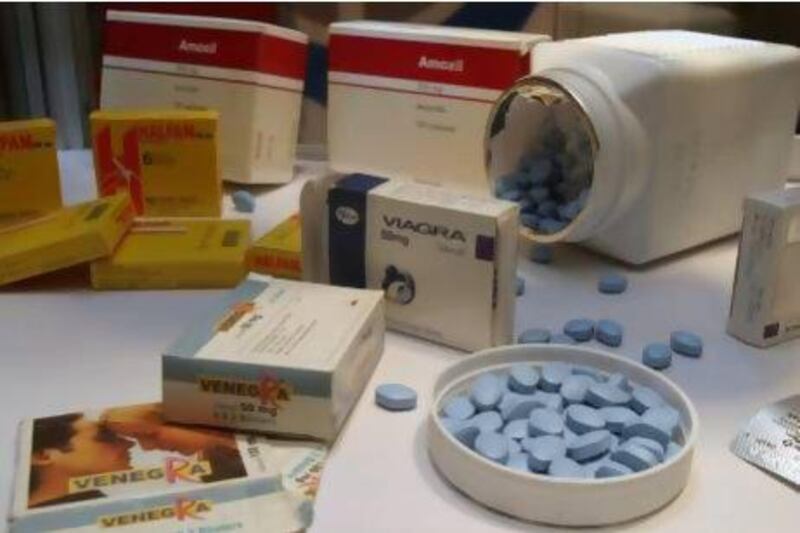DUBAI// Medicine and car parts counterfeiters could face bigger fines under proposals to introduce a sliding scale of punishment for the sale of fake goods in Dubai.
Senior officials with the Dubai Department of Economic Development (Ded) want tougher action against counterfeiters who sell potentially dangerous fakes.
"Although we do take the issue of fake clothing and other things seriously there needs to be a level of punishment that should deter people thinking about bringing fake medicines and car parts on to the market," said Ibrahim Bahzad, from the Ded. "We feel this is the right thing to do because these things have an impact on the health of people directly and the punishment needs to reflect that."
He said the sale of fake perfumes was also a serious problem.
"Updating regulations is a long process so this is not something that can happen quickly," Mr Bahzad said. "We need to have consultations with the relevant authorities and concerned parties before taking things forward."
He was speaking at yesterday's final day of the World Conference for Consumer Rights at the Dubai International Convention Centre.
At present, shops selling fake goods are fined and can have their business licences revoked.
Omar Shteiwi, chairman of the Brand Owner's Protection Group in the GCC, said counterfeiting was a growing problem but steps were being taken to tackle it.
"Now the Ded can conduct raids at Dragon Mart, which, until about a year ago, they were not able to do," he said. "One of these raids recovered Dh15 million in fake perfumes.
"Much of this is linked to organised crime so it's not just about big companies wanting to protect their trademarks, it's a bigger issue of protecting the health and safety of consumers who may think they are saving money by buying a fake spare part for their car but are putting their health at risk.
"These criminals are very smart and it's always a case of trying to stay one step ahead of them."
He said globally the counterfeit market accounted for an estimated US$800billion (Dh2.9trillion) - about 10 per cent of world trade.
Nike's Middle East director of brand protection Richard Rademan said Nike employed a range of secret technology to ensure its products were genuine.






